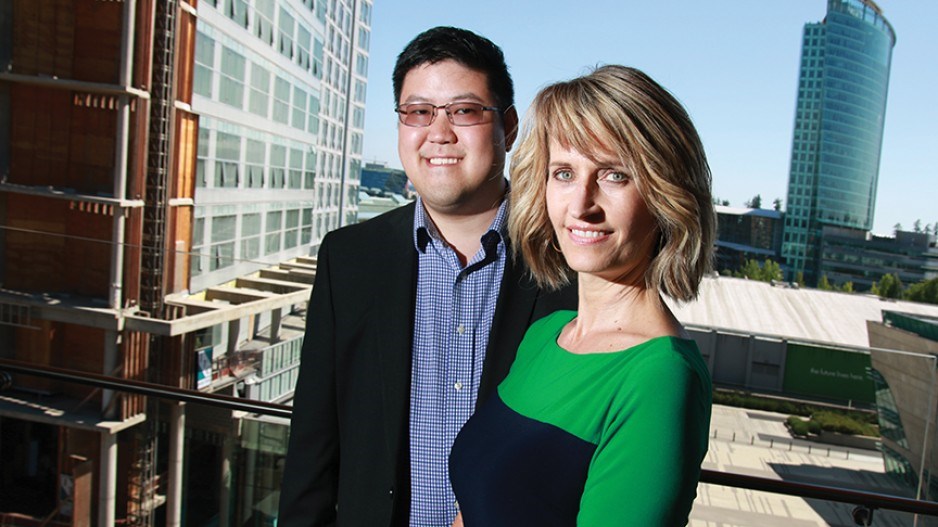Look out, Vancouver, Surrey is gunning for your business.
The Fraser Valley city has quickly become a major magnet for investment, innovation, headquarters and high-tech jobs, luring workers and companies with incentives aimed at cementing its reputation as a pro-business jurisdiction.
The City of Surrey’s economic strategy for 2017-27, titled Building the Next Metropolitan Centre, lays out ambitious goals. The city hopes to create 36,200 new jobs by 2025, at an annual growth rate of 8%, through a set of sectors like manufacturing, clean technology, health technology, agri-innovation and the creative arts.
Perhaps the biggest advantage the city enjoys is its ability to lure companies with cheaper commercial rent, smaller leasing costs and lower land prices, plus reduced red tape compared with Vancouver. Building permits from the City of Vancouver can take six to eight months due to a backlog at city hall, while average wait times in Surrey are around four to six weeks, according to a report from the Fraser Institute free-market think tank.
Companies that have recently opened offices or headquarters in Surrey include: financial software firm Finad; Switzerland-based Temenos; Ireland’s Medtronic (NYSE:MDT); California’s Skydance Media; Japanese electronic music manufacturer Roland; PwC (TSX:PWC); Coast Capital Savings; Westminster Savings; and Vancity.
Donna Jones, general manager for investment and intergovernmental relations for the City of Surrey, said the city has tenaciously lured investment over the past decade. According to its economic strategy report, it added more than 19 million square feet of commercial and industrial space (totalling $13.7 billion worth of construction) over the last 10 years and more than 3,000 new businesses in 2016 alone. Also, at any given time, there are about 1,000 job openings in the city of Surrey.
“What sets us apart from the others is there is truly an entrepreneurial mindset here,” Jones said. “I think it was born out of having to do more with less, maybe being somewhat of an underdog city for a number of years, and that has caused us to be very nimble in our processes.”
Though she said Surrey “has a different value proposition than Vancouver,” acknowledging that lower real estate prices play a big part, Jones added the city might not hit its targets for continuing economic growth if it doesn’t build light-rail transit.
Surrey economic development manager Stephen Wu pointed to inventory of available land as an advantage. According to its economic strategy, Surrey has 38% of the Lower Mainland’s available industrial land base, and the city aims to complete $16.8 billion worth of building development projects over the next decade while also investing $40 million into public amenities and parks.
“That’s a significant advantage we have as an emerging city compared to a lot of those traditional cities,” Wu said. “We can use that land to develop a metropolitan centre of the future.”
In its economic strategy, Surrey compares itself to both Mississauga, Ontario, and Bellevue, Washington. Both went from sleepy suburbs to high-end destinations for companies and headquarters, luring investment away from Toronto and Seattle in the process. The two also have high real estate prices compared with surrounding areas. The median list price per square foot in Bellevue, for instance, is US$413, higher than the Seattle metropolitan average of US$231, according to Zillow.




